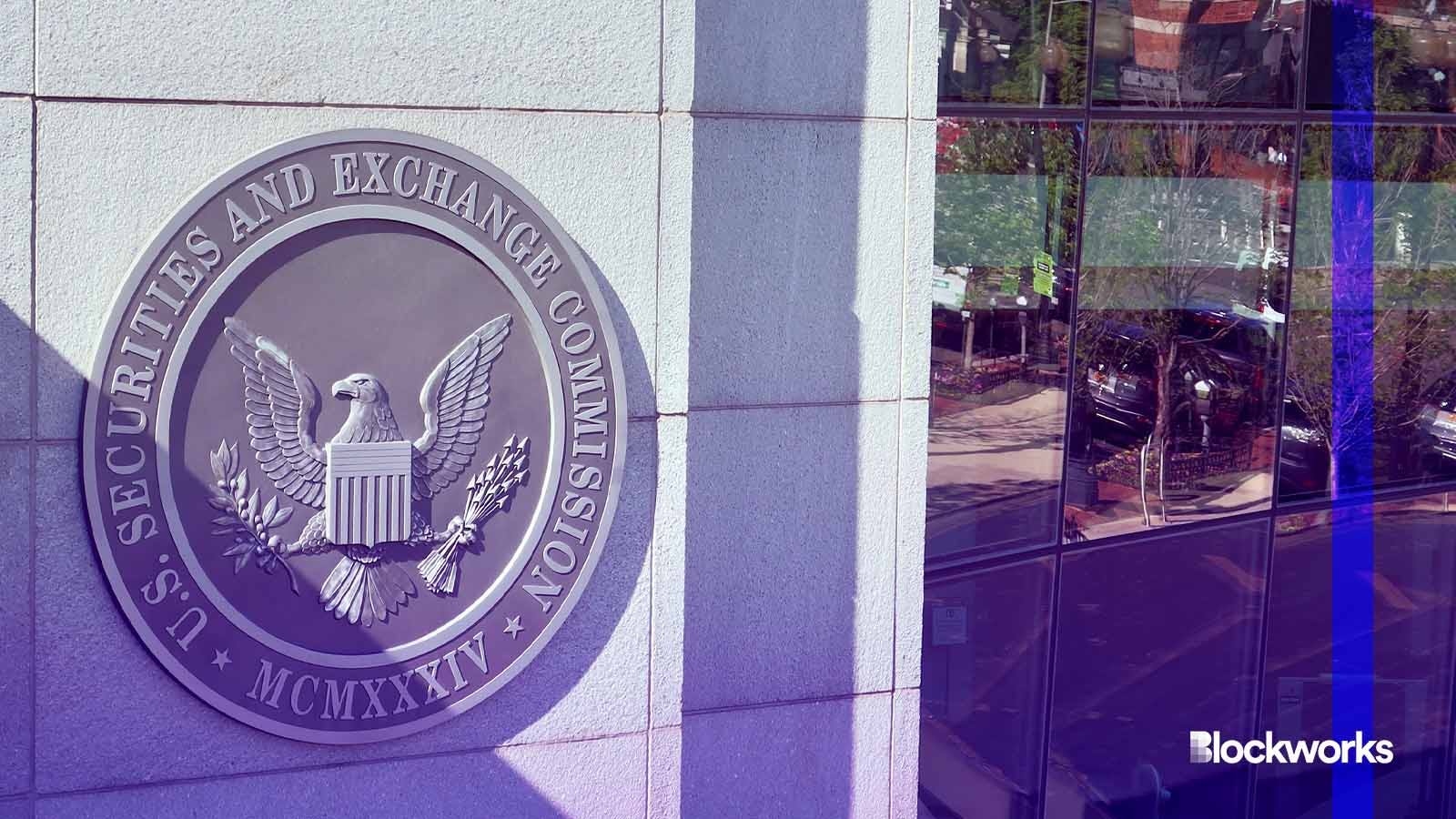The SEC may not vote on bitcoin ETFs, but they could still launch
The SEC has not scheduled a meeting before its deadline to approve Ark and 21Shares’ spot bitcoin ETF application

DCStockPhotography/Shutterstock modified by Blockworks
The US Securities and Exchange Commission might not vote on whether or not to approve a spot bitcoin ETF — at least not publicly.
But that doesn’t mean the product won’t potentially start trading this week.
The SEC’s next meeting, when agency commissioners could vote on matters, is scheduled for Jan. 11. That date is one day after its deadline to approve or deny Ark and 21Shares’ proposal.
Read more: Why many say the approval of spot bitcoin ETFs would be a big deal
While SEC meetings, open or closed, are publicly disclosed, Chair Gary Gensler could opt for a seriatim vote on bitcoin ETF applications. This process allows for votes to be collected without publicly convening a meeting.
Matters voted by seriatim are circulated one by one to each commissioner. The matter only moves forward to the next commissioner after the previous one has cast a vote.
“Given that the Chair decides whether to circulate a seriatim in the first instance, it is reasonable to assume the Chair will approve it,” former SEC Commissioner Luis Aguilar wrote in a 2015 note of advice to new commissioners. “Seriatims can be tricky because one Commissioner can hold onto a seriatim (a ‘desk drawer veto,’ if you will).”
The commission has, at times, decided not to conduct a vote on crypto ETFs, instead opting to delegate authority to staff. The process is, the SEC says, “intended to conserve Commission resources.”
“Many of the early bitcoin exchange-traded product denials were issued by the staff under authority delegated from the Commission,” SEC Commissioner Hester Peirce said in June 2022.
Read more: 26 months after bitcoin futures ETFs launch, traders brace for a spot product
Matters of delegated authority can however be challenged by individual commissioners, who have up to ten days after the decision date to call for a full commission vote, which lengthens the process. In theory, a spot bitcoin ETF could be approved by the staff under delegated authority, but then denied by a commissioner vote.
Commissioners have historically voted on some crypto ETFs.
In January 2023, Gensler, Commissioner Caroline Crenshaw and Commissioner Jamie Lizárraga voted to deny Ark and 21Shares’ Bitcoin ETF, SEC voting records show. In June 2023, the agency again voted on three additional ETF applications, none of which were related to crypto.
In 2018, under former SEC Chair Jay Clayton, commissioners unanimously voted to deny the GraniteShares and ProShares bitcoin ETFs.
Read more: Former SEC chair calls bitcoin ETF approval ‘inevitable’
Gemini founders Cameron and Tyler Winklevoss’ first attempt at a bitcoin ETF, filed in 2016, was denied via delegated authority in March 2017. When Bats BZX Exchange requested the commission review the decision, commissioners did so and once again denied the product, this time via vote in 2018.
In 2021, bitcoin futures ETFs were effectively green-lit without much fanfare.
Investors knew ProShares’ Bitcoin Strategy ETF would be listed when the issuer filed its post-effective amended prospectus — a sign the SEC hadn’t blocked the proposal. ProShares’ ETF hit the NYSE Arca four days later.
The SEC declined to comment on whether or not a vote will take place this week.
“Broadly speaking, if the Commission declares a registration statement effective, that is reflected on EDGAR,” an SEC spokesperson told Blockworks. “Any Commission 19b-4 orders will be posted on our website and then published in the Federal Register.”
Get the news in your inbox. Explore Blockworks newsletters:
- The Breakdown: Decoding crypto and the markets. Daily.
- 0xResearch: Alpha in your inbox. Think like an analyst.






